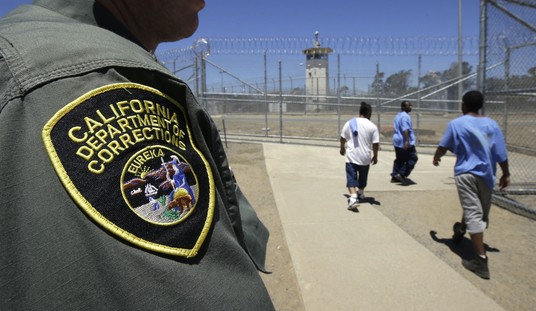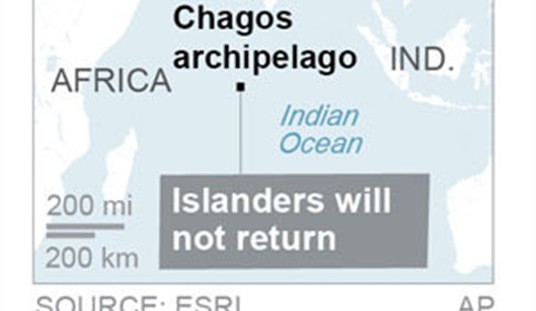You don’t see spikes like this in political data very often, especially when the data from the other two parties is flat. This isn’t some systemic surge of interest in third-party options among all Americans. This is a Republican phenomenon entirely.

You can read the GOP trend towards dissolution there as a story in three chapters. Chapter one: Discontent over Iraq between 2003 and 2007 — although my guess is that Republican support for a third party circa 2003 was actually artificially low after 9/11 and the initial surge of support for the war. Forty percent was probably par for the course in years prior. Chapter two: The tea-party era, with a new record number of Republicans wanting an alternative to the GOP establishment circa 2011. Chapter three: The Trump years, with another new record set in 2016 as pro-Trumpers and anti-Trumpers wrestled with whether the party’s new nominee and its leadership class could coexist.
What each of those chapters had in common was that Democrats, at one time or another, managed to equal or exceed Republicans’ peak interest in a third party. Not anymore. Now we’re at chapter four, the post-Trump years, with a surge in support to 63 percent that Dems haven’t even approached over the past 18 years. Wrap your mind around the fact that, as intense as the tea party’s dissatisfaction with the GOP establishment was 10 years ago, third-party support now is greater by a third than it was then.
Lotta unhappy Republicans out there. And it matters which ones are unhappy.

“More conservative” and “more moderate” is a poor way to address the dividing line within the party, which falls along Trump and populism, not “conservatism.” My guess is that the group that answered “more conservative” meant “more like Trump” or “more populist/authoritarian,” not “more in favor of lower spending” or whatever. If I’m right then the spike in interest for a third party among righties isn’t an anti-Trump thing. (Which makes sense, since many anti-Trumpers doubtless stopped identifying as Republicans awhile back.) It’s a pro- Trump thing, as MAGA types confront the prospect of four years in which the party is led by the likes of Mitch McConnell and Kevin McCarthy and respond, “No thanks.”
Or rather, it’s both. It’s mainly a phenomenon among Trump fans who feel no strong interest in the GOP when their guy isn’t formally in charge of it but secondarily it’s a function of the party’s remaining anti-Trumpers feeling disgusted by the Capitol riot and the impunity for the former president that followed it. That’s different from the previous three chapters of third-party interest too. During the Bush years it was chiefly one group, righties who’d soured somewhat on the war, that was driving the third-party interest. During the tea-party years it was one group, small-government populists, that was driving it. During Trump’s candidacy in 2016 the party began to pull apart into two groups, MAGA and Trump skeptics, but by the time he became president the latter group had come around. Republican interest in a third party slipped to its lowest point in years.
But now, post-Trump and post-insurrection, we may have meaningful interest in a third party among those same two groups, adding up to nearly two-thirds of Republicans overall willing to abandon ship if a more attractive option came along.
Which it won’t, of course. The takeaway from this poll isn’t that a third party will supplant the GOP, as third parties are nonstarters in the U.S. for structural reasons. The only thing that would drive a meaningful number of Republicans into a new party would be Trump himself starting one and he has neither the organizational skills nor the incentives to do that. It’d be foolish for him to start a MAGA party and coopt, say, 60 percent of the GOP base, as that would result in one of two outcomes. Either his candidates would lose election after election by splitting the right-wing vote with a rump Republican Party or the remaining Republican voters in that rump would vote strategically in general elections for Trump’s party in order to defeat the Democrats. In which case Trump’s party would be basically indistinguishable from the current GOP apart from its name. Same core coalition, same core motive — “anything but Democrats!” — but exciting new label.
It’d be like “Aunt Jemima” rebranding as the more politically correct “Pearl Milling Company,” except in reverse.
The real takeaway from the poll is that the degree of dissatisfaction within the GOP could create turnout problems for the party in certain races. When asked by Gallup whether they want Trump to remain leader of the GOP, 68 percent of Republicans said yes versus 31 percent who said no. (Interestingly, and maybe ominously, it was 47/51 among Republican-leaning independents.) We can think of those groups as the majority “Trump wing” of the GOP and the minority “Paul Ryan wing.” But we’ve already seen firsthand that there are enough “Ryan” Republicans to have probably cost Trump a second term by crossing over for Joe Biden in November. The flip side may have happened in the Georgia Senate runoffs, with enough hardcore MAGA types staying home to protest the supposedly rigged presidential election in November to have cost the GOP two Senate seats, even with Trump halfheartedly campaigning for the two pretend-populist Republicans who were on the ballot.
Point being, if the party coalition fractures to the point where some small but meaningful fraction of Trump voters just won’t vote for Ryan candidates anymore and vice versa, the consequences could be devastating. No one’s headed off to a third party. (Unless, again, Trump starts one, and why would he when he owns the GOP?) But some Trumpers may be headed for their living-room sofas on Election Day while some anti-Trumpers may be headed for voting Democratic more frequently.
I’ll leave you with Frank Luntz deluding himself into thinking that Trump can’t get elected again.
While Donald Trump may ultimately be acquitted in the Senate impeachment trial, Republican pollster @FrankLuntz says this trial "permanently tarnishes" Trump's image: "There isn't even a shred of hope for him if he should ever try to re-enter politics." pic.twitter.com/4gxkYEszu2
— Power & Politics (@PnPCBC) February 13, 2021








Join the conversation as a VIP Member